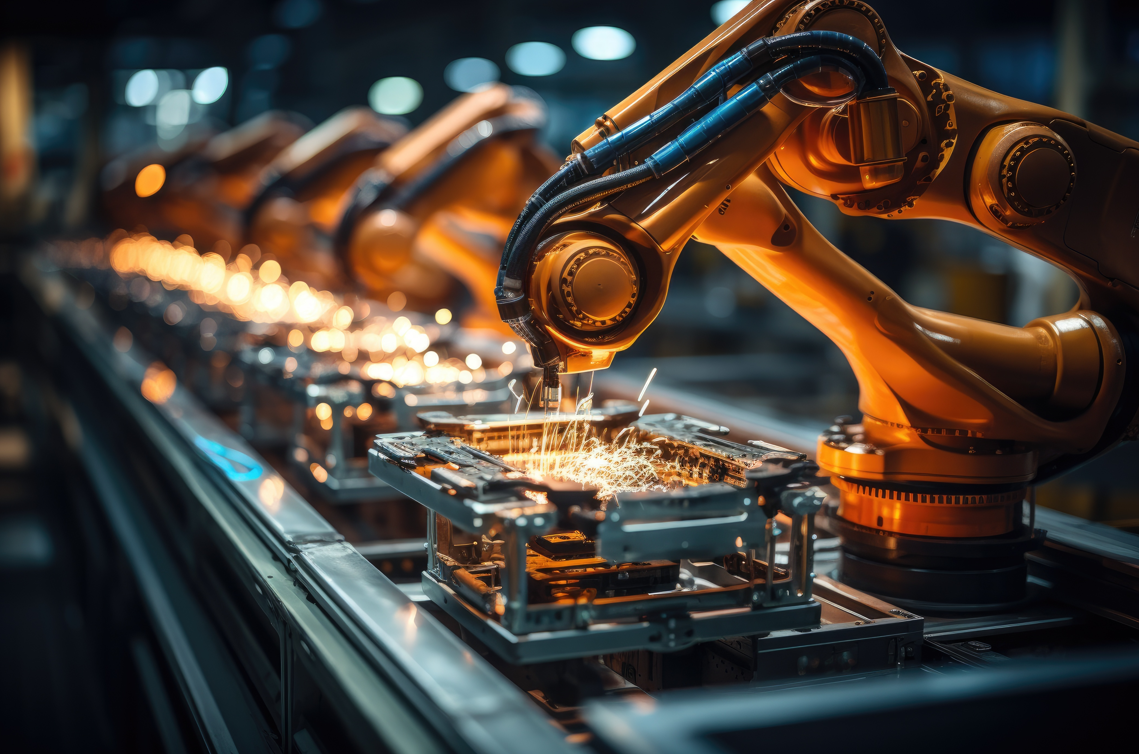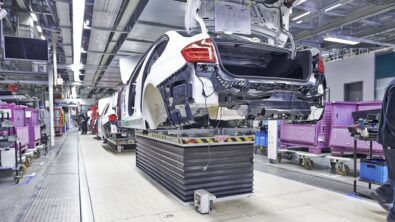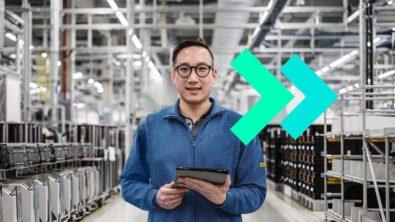The future of manufacturing: How AI, Smart manufacturing solutions, sustainability initiatives, and global partnerships will shape 2024

The world of manufacturing is evolving rapidly, and the discrete manufacturing sector is no exception. As we look towards the future, it becomes evident that artificial intelligence (AI), smart manufacturing solutions, and sustainability initiatives will play pivotal roles in shaping the future of this industry. In this blog post, we will explore how these transformative technologies and initiatives are set to revolutionize the discrete manufacturing sector, enabling businesses to achieve greater efficiency, sustainability, and competitiveness.

AI: Unlocking new levels of efficiency and productivity
Artificial intelligence is poised to revolutionize the way discrete manufacturing operates. By leveraging AI-powered technologies, manufacturers can optimize their production processes, streamline operations, and reduce costs. AI algorithms can analyze vast amounts of data in real-time, enabling predictive maintenance, quality control, and supply chain optimization. With AI, manufacturers can achieve higher levels of efficiency, minimize downtime, and deliver products faster, ultimately enhancing customer satisfaction.
Smart manufacturing solutions: Embracing the digital revolution
Smart manufacturing solutions, characterized by the integration of digital technologies into manufacturing processes, will transform the discrete manufacturing industry. The adoption of technologies such as the Internet of Things (IoT), big data analytics, and automation enables real-time monitoring, remote management, and seamless communication between machines, systems, and stakeholders. This digital transformation empowers manufacturers to optimize their production lines, improve inventory management, and respond swiftly to changing market demands. By embracing smart manufacturing solutions, discrete manufacturers can achieve unprecedented levels of agility, flexibility, and scalability.

Sustainability initiatives: Driving environmental responsibility
Sustainability initiatives in the discrete manufacturing industry focus on reducing carbon emissions, minimizing waste generation, and conserving natural resources. Manufacturers are adopting cleaner and more energy-efficient technologies, such as renewable energy sources and energy management systems, to reduce their carbon footprint. By implementing sustainable manufacturing practices, companies can not only contribute to environmental conservation but also improve their brand reputation and attract environmentally conscious customers.
Circular economy: embracing a waste-free manufacturing model
The concept of a circular economy is gaining traction in the manufacturing sector. Instead of the traditional linear model of “take-make-dispose,” companies are transitioning towards a more circular approach that aims to minimize waste and maximize resource efficiency. Discrete manufacturers are exploring ways to reduce material waste through recycling and reusing processes, as well as implementing product life extension strategies. By embracing the circular economy model, manufacturers can create a more sustainable and resilient supply chain while reducing costs associated with raw material procurement and disposal. Sustainable supply chain: Collaboration and transparency
Sustainability initiatives in the discrete manufacturing industry go beyond the factory floor. Companies are increasingly focusing on building sustainable supply chains by collaborating with suppliers who share their environmental values. This involves assessing suppliers’ sustainability performance, promoting responsible sourcing practices, and ensuring transparency throughout the supply chain.
In the ever-evolving global economy, sustainable products and processes are emerging as a crucial competitive advantage. It’s no secret that the design phase plays a significant role in determining over eighty percent of all product-related environmental impacts. That’s why making sustainable choices during product design is not just a business decision, but a critical one.
By embracing digitalization and automation, businesses can improve the sustainability of their design and production processes and tap into collective intelligence. This approach allows for better control and management of data, fostering collaboration with stakeholders throughout the value chain. Together, they can make climate-conscious decisions that positively impact the entire product development lifecycle.
The need for a cleaner, greener planet is only growing stronger, and the demand for sustainable operations and products will continue to rise in the years to come. That’s where the Siemens Xcelerator digital business platform steps in. With its ability to address the complexities of today and the sustainability goals of tomorrow, Siemens is well-positioned to support businesses in their journey towards sustainability.
To encourage wider adoption of sustainable practices, government and legislative bodies are offering incentives and financial rewards to businesses willing to take on this challenge. The time to act is now, as the stakes are high, and industries worldwide must decide the role they want to play in shaping a better future.
Siemens is committed to partnering with business leaders who are ready to make a change for the better. As a global technology leader, Siemens brings extensive real-world experience in developing climate-friendly and sustainable products for businesses across the planet. Let’s work together to create a more sustainable future.
Additional resources:
Maximize efficiency with personalized MES software | Siemens
What’s new in Opcenter Execution Discrete 2401
Monitoring and controlling material flow for a more efficient automotive manufacturing floor


